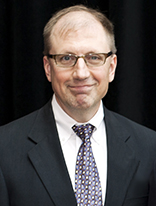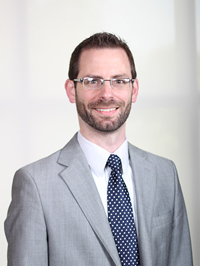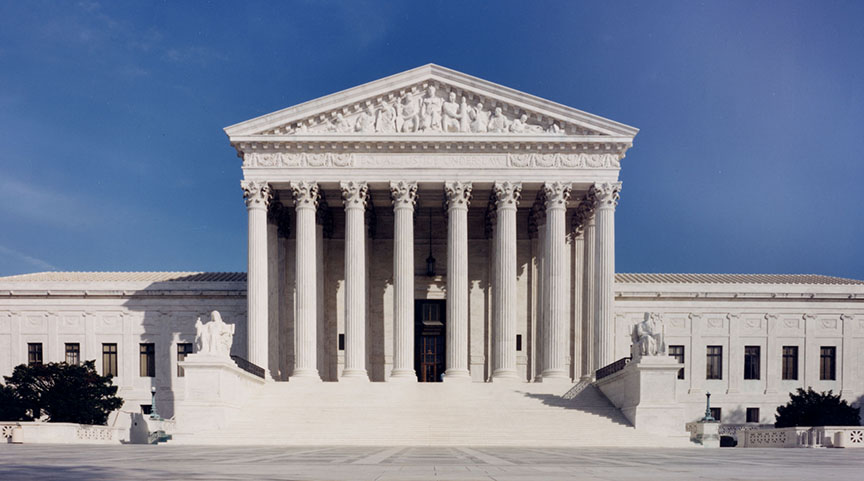On June 30, the Supreme Court decided the case of Espinoza v. Montana Department of Revenue, ruling that a state program granting tax credits to those who donate to organizations that offer private school tuition scholarships violated the Free Exercise Clause of the First Amendment by prohibiting families from using the scholarships at religious schools.

St. Thomas Law Professor Thomas Berg
In the majority’s opinion, Chief Justice John Roberts made three citations to the casebook Religion and the Constitution (2016), written by St. Thomas Law Professor Thomas Berg, Michael W. McConnell, a professor at Stanford Law School, and Christopher Lund, a professor at Wayne State University Law School.
Berg’s involvement in the issue dates back to 2015, when he and Jennifer Tripp ’16 J.D., then a student lawyer in the St. Thomas Religious Liberty Appellate Clinic, which is directed by Berg, filed a memorandum letter urging the Montana Department of Revenue not to seek to exclude families from using the aid at religious schools.
When religious school families who lost scholarships when the program was invalidated by the Montana Supreme Court petitioned the U.S. Supreme Court for review, the clinic filed a supporting amicus brief co-drafted by Berg and then-student Scott Fulks ’19 J.D.
Berg went on to co-author a brief on the merits of the case with Professor Douglas Laycock of the University of Virginia Law School, which was filed on behalf of multiple religious organizations including the United States Conference of Catholic Bishops, the Orthodox (Jewish) Union and the Christian Legal Society. The brief was cited by Justice Brett Kavanaugh during oral argument in January 2020.
From the initial memorandum letter through the Supreme Court briefs, Berg and his co-authors, including the clinic students, have argued that religious individuals and institutions should have the freedom to practice their faith without unnecessary government interference or discouragement, and that this includes having the ability to use a government educational benefit at a religious school on the same terms as non-religious private schools. The briefs have cited – and the Supreme Court ultimately relied on – the 2017 case of Trinity Lutheran Church v. Comer, in which the Court held that the state of Missouri could not declare an organization ineligible for a playground-resurfacing grant because it was a church.
“The court’s decision and its implications for future cases will help ensure that families with modest incomes can receive educational assistance without losing it because they want a religiously grounded education for the children,” Berg said. “I’m also gratified for all the valuable analysis and writing that students put into this case.”

Scott Fulks ’19 J.D.
Reflecting on his experience working on Espinoza for the Religious Liberty Appellate Clinic and with Professor Berg, Fulks said, "I found the experience of drafting an amicus brief with one of the foremost First Amendment scholars in the nation to be incredibly formative. I came to appreciate the history of First Amendment jurisprudence, which seeks to protect religious freedom and restrain the establishment of religion by the government. The helpful interplay, yet proper separation, between these ideas are crucial in upholding First Amendment liberties for future generations.”
Fulks continued to follow the case after he graduated and was even able to attend oral argument in Washington, D.C. this past January.
Religious Liberty Appellate Clinic
The Religious Liberty Appellate Clinic is one of 14 legal clinics at the University of St. Thomas School of Law. The clinic’s primary clients are national civil liberties organizations and national religious organizations. Each year St. Thomas law students apply to participate in the clinic and, under the guidance of Berg, write appellate briefs – primarily amicus curiae briefs – in cases involving religious liberty in the U.S. Supreme Court, lower federal courts and state appellate courts. The clinic supports religious freedom for all faiths and has filed briefs on behalf of Muslim, Jewish, and Christian adherents and groups.
Further reading
Professors Berg and Laycock explore what the Supreme Court’s decision in Espinoza suggests for future disputes over funding of religious service providers, and for other questions about the religion clauses, in a recent article for an online symposium hosted by SCOTUSblog.
Berg also discusses Espinoza and other religious freedom cases this term on an episode of the "In Lieu of Fun" webinar series, hosted by Benjamin Wittes and Kate Klonick.







